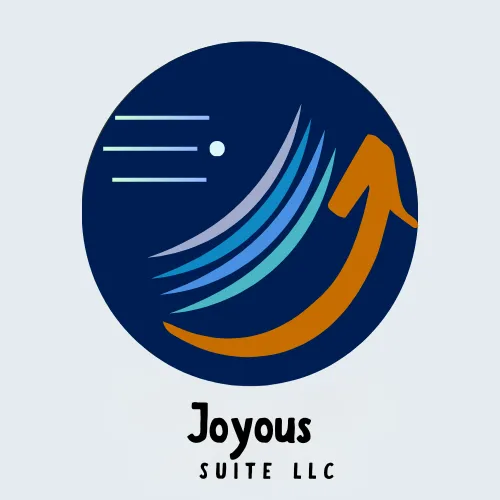
The Virtual CFO Revenue ModelVirtual CFO Pricing Strategy: How to Charge What You're Really Worth
The Virtual CFO Revenue Model: How to Price Strategic Services
by Joy Francis, CFO and AI Automation Strategist
How do you price expertise that can save a client's business or unlock millions in growth potential? After transitioning from a $100-a-week bookkeeper to a CFO managing multimillion-dollar investments, I've learned that pricing strategic financial services isn't about hourly rates but value creation.

Figure 1. Created by Joy Francis using Flux 1.1 Pro Ultra
The virtual CFO revenue model represents one of the most lucrative opportunities in professional services today. Yet many CPAs struggle with pricing these services because they think like compliance providers rather than strategic partners. Let me share the pricing strategies that have enabled me to command premium fees while delivering transformational results for clients.
Understanding the Value-Based Pricing Foundation
Traditional accounting services are priced on time and materials—you track hours and multiply by rates. Virtual CFO services operate on an entirely different model: value-based pricing. You're not selling time; you're selling outcomes, insights, and strategic guidance directly impacting your client's bottom line.

Figure 2. Created by Joy Francis using Flux 1.1 Pro Ultra
When I stepped into the CFO role at the real estate conglomerate during the 1980 recession, with prime rates hitting 21½ percent, I wasn't paid based on how many hours I worked. I was compensated for keeping the company profitable when competitors were failing. The value I provided—strategic systems that maintained profitability during crisis—was worth far more than any hourly calculation could capture.
According to the Association for Financial Professionals, companies with strategic CFO guidance show 23% higher profit margins than those relying solely on transactional accounting services (Association for Financial Professionals, "Strategic Finance Impact Study," 2023). This performance differential is the foundation of value-based pricing.
The Three-Tier Virtual CFO Pricing Structure
Successful virtual CFO practices typically employ a three-tier pricing model that allows clients to choose their level of engagement while maximizing revenue potential:
Tier 1: Financial Foundation ($2,500-$4,000/month)

This entry-level package focuses on establishing a solid financial infrastructure. Services include monthly financial statements with analysis, cash flow forecasting, KPI dashboards, and quarterly strategic reviews. This tier serves clients who need more than basic bookkeeping but are not ready for a full strategic partnership.
Tier 2: Strategic Partnership ($4,500-$7,500/month)
The mid-tier offering includes everything from Tier 1 plus weekly financial check-ins, budget development and monitoring, scenario planning, Figure 3. Created by Joy Francis using Flux 1.1 Pro Ultra
and participation in key business decisions. This level serves growing companies that need regular strategic input.
Tier 3: Executive Leadership ($8,000-$15,000/month)
The premium tier provides comprehensive CFO services, including daily availability, board meeting participation, investor relations support, M&A guidance, and strategic planning facilitation. This serves established companies requiring full CFO-level expertise.
Research from the CPA Practice Advisor shows that firms using tiered pricing models generate 40% higher average revenue per client compared to those using flat-rate or hourly pricing (CPA Practice Advisor, "Advisory Services Pricing Study," 2023).
Industry-Specific Pricing Considerations

Figure 4. Created by Joy Francis using Chat GPT
Your pricing should reflect the complexity and value potential within specific industries. During my career, I've worked across multiple sectors, each presenting value opportunities and pricing justifications.
In real estate and construction, where I managed projects during high-interest periods, the ability to maintain profitability through strategic financial management was worth millions. These industries can support higher pricing due to the significant financial impact of strategic decisions.
Family businesses, like the insurance agency where I helped structure a tax-efficient succession plan, often require specialized expertise in transition planning and family dynamics. These situations command premium pricing because the stakes—preserving generational wealth—are extraordinarily high.
According to Industry Week, manufacturing companies implementing strategic financial management see average cost reductions of 15-20% within the first year (Industry Week, "Financial Strategy in Manufacturing," 2023). This quantifiable impact supports premium pricing in industrial sectors.
The Retainer Model: Predictable Revenue for Strategic Services
Virtual CFO services work best under retainer agreements rather than project-based pricing. Retainers provide several advantages: predictable revenue for your firm, consistent client access, and the ability to provide proactive rather than reactive guidance.

Figure 5. Created by Joy Francis using Flux 1.1 Pro Ultra
While working with the Southeast Michigan Venture Capital Group, I learned that the most successful financial advisors maintained ongoing relationships rather than transactional ones. The venture capitalist willing to give the young inventor 51% of his business (unusual in that industry) did so because he understood the long-term value of the relationship.
The key to successful retainer pricing is clearly defining what's included and what constitutes additional work. Your retainer should cover regular strategic activities, while special projects like M&A support, fundraising assistance, or system implementations are priced separately.
Pricing Psychology: Positioning Yourself as an Investment, Not an Expense
How you present your pricing dramatically impacts client perception and acceptance. Virtual CFO services should be positioned as an investment in business growth and risk mitigation, not as an operational expense.
I learned this lesson early when the problem loan officer at our lead bank called me to evaluate mortgage purchases worth hundreds of thousands of dollars. He trusted my judgment over his own manager, who had 30 years of experience. That trust translated into significant value for both the bank and our company, value that far exceeded any fee calculation.
When presenting pricing, focus on ROI rather than cost. A $5,000 monthly retainer that helps a client avoid a $50,000 mistake or identify a $100,000 growth opportunity is an exceptional investment. Frame your conversations around value creation, not fee justification.
The Minimum Viable Pricing Strategy
Many CPAs undervalue their strategic expertise, especially when transitioning from compliance work. However, pricing too low can actually hurt your credibility and client results. You can't deliver the value clients expect if you're not charging enough to invest in ongoing education, technology, and strategic thinking time.

Figure 6. Created by Joy Francis using Flux 1.1 Pro Ultra
Based on my experience and industry research, the minimum monthly retainer for legitimate virtual CFO services should be $2,500. Anything below this level suggests you think like a bookkeeper rather than a strategic advisor.
Remember, when I was making $100 a week as a bookkeeper, I provided transactional services. When I became a CFO, I provided strategic value that saved companies and created wealth. The pricing should reflect this fundamental difference in value creation.
Scaling Your Revenue Model
The beauty of the virtual CFO model is its scalability. Unlike traditional accounting, where revenue is limited by billable hours, virtual CFO services can scale through:
- Technology leverage: Using dashboards and automated reporting to serve more clients efficiently
- Team development: Training staff to handle routine strategic tasks while you focus on high-level guidance
- Specialization premium: Developing deep expertise in specific industries or business situations
During my teaching years at Ford Motor Company, I learned that the most successful programs could be systematized and scaled. I taught three classes daily, three hours each, because I had developed repeatable systems delivering consistent value.
Handling Price Objections
When clients question your pricing, remember that objections often stem from a lack of understanding of the value proposition. Share specific examples of how strategic financial guidance has impacted other businesses. Quantify the potential risks of not having CFO-level expertise.
When I walked into the CEO's office and told him I was willing to take on the entire company as CFO, I wasn't just asking for a promotion—I was proposing a solution to a critical business need. The value was clear, and the pricing discussion became secondary to the strategic necessity.
Your Pricing Implementation Strategy
Transitioning to virtual CFO pricing requires confidence and clear communication. Start by:
1. Documenting your value creation: Track and quantify the impact of your strategic advice
2. Developing case studies: Create compelling stories that demonstrate ROI
3. Training your team: Ensure everyone understands the value-based pricing model
4. Testing with ideal clients: Start with clients who already value your strategic input
The Revenue Transformation Awaits
The virtual CFO revenue model isn't just about charging more—it's about creating more value and building deeper client relationships. When you price strategically, you attract clients who value expertise and are committed to growth.
Remember what I learned from bookkeeper to CFO: your pricing reflects your positioning. Your pricing must reflect that positioning if you want to be seen as a strategic partner rather than a service provider.
The market is ready for strategic financial leadership. The question is: are you ready to price your expertise at its true value?
My mother always said, "You can do anything if you set your mind to it." Setting your mind to value-based pricing is the first step toward building a truly profitable virtual CFO practice.
Joy's journey from bookkeeper to CFO of a public company taught her that success isn't about being the smartest person in the room—it's about asking the right questions and having the courage to act on the answers. She now helps CPAs transform their practices by shifting from compliance to strategy.
Get your personalized Growth Pathway Playbook™. Book a 30-minute meeting. You’ll walk away with your own playbook to grow your business.
Works Cited
Association for Financial Professionals. "Strategic Finance Impact Study." AFP, 2023.
CPA Practice Advisor. "Advisory Services Pricing Study." CPA Practice Advisor, 2023.
*Industry Week*. "Financial Strategy in Manufacturing." Industry Week, 2023.


